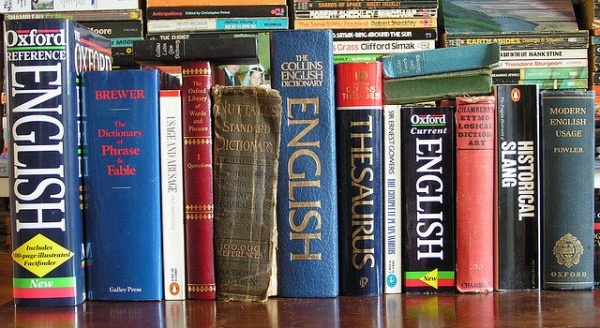Hafidzi Razali thinks it’s time for a student of Malaysia’s two education policies in the past 10 years to voice out his opinion, as he can’t seem to stand having the loud voices of parents-who-know-it-all dominate this policy debate any longer.
I am part of the policy-tinkering generation of Malaysia’s education system, having studied Science & Mathematics both in Malay and English throughout 10 years of public schooling. It bothers me to read newspaper reports and articles of activists supporting either side, and honestly speaking, opinions that speak the greatest volumes must be from the students in this policy-changing phase themselves, rather than parents who probably earn a handsome income.
Before indulging deeper into this most controversial policy debate, a brief account of my public education history does well to put me in such a position for my views on this matter to be respected.
Like most middle-income Malay families, I was raised in a family which speaks Malay nearly all the time but which also places strong emphasis on learning English as a pivotal learning tool. Despite not using English as the mother tongue, I’d describe myself as someone who can speak English fluently, and I guess good enough to write articles with minimal (or no) grammatical errors with extensive vocabulary. But then again, I wouldn’t credit the Government’s policies for it was my personal effort plus my supportive parents which enabled me to master English, which brings me to the whole dilemma this case is all about.
If anyone were to reflect on the effectiveness of policy-making, you’ll first have to place yourself in the position of an average Jack, not view things from the perspective of parents with professional backgrounds worrying about their children’s academic future. As a Malay guy hailing from a sub-urban area of the ‘modern state of Selangor’, the level of English competency among students is admittedly worrying. In fact, the core of this critical problem isn’t racial-centric, as the majority of Chinese and Indians from vernacular schools are not as fluent in English either. As students, we’re often taught to study English for the sake of scoring well in exams, hence you can see 17-year-olds writing a decent 10-year-old-standard essay scoring As for English in SPM, what more when speaking English, if not merely constructing sentences, in is a bane.
Politics aside, I agree with the DPM’s major concern of prioritising the pinnacle of the problem first. If English is really the main problem, let’s improve on how we teach English first before anything else. If students are grappling to even construct decent, grammatically-correct sentences, how can they even understand a Biology text to begin with?
I’ve gone through these phases of learning Science and Mathematics in both languages, and I reserve no credit to PPSMI for my current level of English, in fact, it saddens me to see the ridiculous approach adopted by some students who read dictionaries and ‘example essays’ for their English writing papers.
It’s best if we look beyond the strive to have English as the medium for Science and Mathematics and figure out first the best way to learn English, rather than the unproven successes of merely using the language on the basis that ‘the world of Sciences is in English’.

We know for a fact that it’s beneficial for our students to know English, so that it’d be much easier for them upon reaching tertiary education. However the mindset transformation doesn’t start by tweaking the medium of instruction. Even worse, the already-inept English teaching system is making it harder for rural students especially to comprehend the essence of Sciences, which may result in their inability to grasp the ‘why, when and how’ concepts. Truth be told, reality is far from what we may imagine our students to be. We can’t deny that the policy may in fact spur the English learning process, but again let us get back to the root of the problem, which is English incompetency. I see no reason for our students to struggle with tertiary commitments in Sciences if they can already master the concepts while in high school, even if it were to be in Bahasa Melayu.
Using Bahasa Melayu to learn will enable almost everyone to understand the concepts first, and once they do, it’d be much easier to deal with the various nuances of Sciences rather than looking at them from a single viewpoint. Provided that our English learning system is going to be implemented in as heavenly a manner as the DPM envisioned, not only students are able to comprehend the essence of Sciences (on the assumption that everyone understands Bahasa Melayu), the supposedly improved system of English education can provide the necessary tool for students to explore Science more deeply, in contrast with the status quo of being spoon-fed by SPM reference books.
My fervent hope is for English to be enhanced again, and having said that, I don’t think the right way is by making it the medium for learning Science and Mathematics. We know that most Malaysians of late are grappling with English. It’s time for us to reflect on this fragility of our education system first before more of our students get left out, not just with regard to English but to Sciences and Mathematics as well.
It’s time for the ruling party to revamp our English syllabus. As of now, the status quo has clearly failed to produce the English-speaking generation we wished for. If my opinions were ever to be taken into your mindful thoughts, please consider these reforms for the sake of our nation:
1. Your textbooks are mostly useless to inculcate the fun of learning English. Students don’t usually grasp the idea of grammar and comprehension, thus are unable to apply the basics in their everyday use of English. We must now seek help from acclaimed linguistic experts to meddle with our syllabus. We can’t go far if 17-year olds are still getting diagrams and excerpts from passages. Circling the right answer from a choice of simplistic statements do not by any means develop a student’s critical insight, but merely spoon-feeds answers in the study of literature.
2. It’s time to do away with our one-off oral test. There should be many avenues for students to be continuously aware of the need to speak English, rather than just a pre-memorized casual conversation with their English teacher once or twice a year. Sadly, some English teachers even speak Malay in class. Perhaps things would be much better if English teachers can start conversing entirely in English as how foreign teachers may do.

3. Communication is often missed out during English classes. There’s minimal or no interactivity between learners and educators, which is something to be focused on during lessons. In the USA, the first and last phases of learning are always about recap-ing discussions and getting feedbacks from the majority of students. As far as my experience has shown, learning English in public schools constitutes more of bringing homework home after 20 minutes of jotting down notes, and another 20 minutes of listening to explanation, rather than a time for reflection on what has been studied in class by the students themselves.


Not everyone will need to be well informed and knowledgeable in Science and maths and depend on them in their career. But there are those that do. So the parents should know in which category their offspring belongs. So let them make the choice. No need to be arrogant to decide for others.
@ pro ppsmi parent and @meenu: True that PPSMI is not all about learning English, in fact Dr M really made it clear that his main purpose is because it's "impossible to find an interpreter fluent enough in both Bahasa Malaysia (BM) and English as well as an expert in science who would be able to translate the subject thoroughly for students", and also "to help students master Sc and Mathematics".
I'm trying to imply that the PPSMI has not been hitting the notes we envisioned..after 10 years.
On the technical aspect of it, majority of students are having minimal understanding of the concepts due to this language barrier.
Yes, it may be possible for our students to go to an extent of creative innovation, thanks to better exposure to Sciences, however if you may look at a bigger picture, just imagine how catastrophic it can be if more are being left out just because they don't understand the principles of Sciences in English which is more concerning than the less 10% who might have benefited from it?
How're the students in rural areas (or even urban) are going to cope with application of theories if their English level itself is not ready to embrace the Scientific explanations?
Logically speaking, how's the translation phase is going to be a problem merely on the basis of 'not having enough interpreters' if the context of study is only SPM-level Sciences? Even in the status quo of learning Sciences and Mathematics in English, I didn't see myself studying meticulous approach of analysing Formula One aerodynamics, as per example of complexity which may require the number of interpreters as how Dr M sees it.
As high school Sciences are more into seeing the tip of the iceberg first, why don't we let everyone the opportunity to
understand and reason beyond the theories without any language barrier to begin with?
@ Meenu did mention her concern that there's a possibility of students improving their grasp of English Language, and that's why I keep stressing the need of prioritising on which matters first.
Studying Sc and Math in English is not the right direction if our main concern is to improve English.
Don't matter with the direct translation of English-BM so long as 'kon kelalang' is what the students thought of conical flask, I don't think 'the needless twisting of terms' is of a major concern than:
a) Students losing interest or failing in Sciences and Mathematics due to language barrier
and
b) The worrying state of the decline of English language among Malaysian students.
Hence, I stand firm on my view that it may be best if we empower the learning of English first, while making Sciences and Mathematics understandable to all at SPM (and below) level so that no one would be left out as our English lessons in school is not of the right standard just yet.
"impossible to find an interpreter fluent enough in both Bahasa Malaysia (BM) and English as well as an expert in science who would be able to translate the subject thoroughly for students"
i think interpreters/translators of such quality is also in the decline in other fields thanks to 'bahasa rojak'. i watch BM subtitled or dubbed shows from time to time and can easily tell the symptoms of one whose command of BM eroded due to poor juggling of languages. the shit has hit the fan several times yet no one bothers to act…
Hi, yes I agree with what you’ve written abt the state of how English ought to be taught. However, do not lump the current debate abt EteMS or PPSMI with it.
Together with English as a subject, Maths & Science, students have I believe, ample avenue to improve their English grasp as well as their knowledge of Science/Maths. Please do not assume that students will not improve in their grasp of the English language as there’s enough cross learning taking place when language is in use. All terms used in Maths and Science does indeed contribute to enriching the prevailing level of a student’s proficiency.
It’s far better to use terms that have not been translated. Take your the visuals you’ve used in this article itself, kon kelalang? Isn’t the kon borrowed from the ‘conical’? Why bother with all this needless twisting of terms from English, just to call it a new BM term?!
i presume you wrote this fairly recent.
your article talk mainly about learning and improving english and that ppsmi is not the right way to go about it.
where have you been, why are you still arguing ppsmi is about learning english?
either you ar very out of touch on this issue or your reasoning capacity is lacking.
here, read this http://www.themalaysianinsider.com/malaysia/artic…